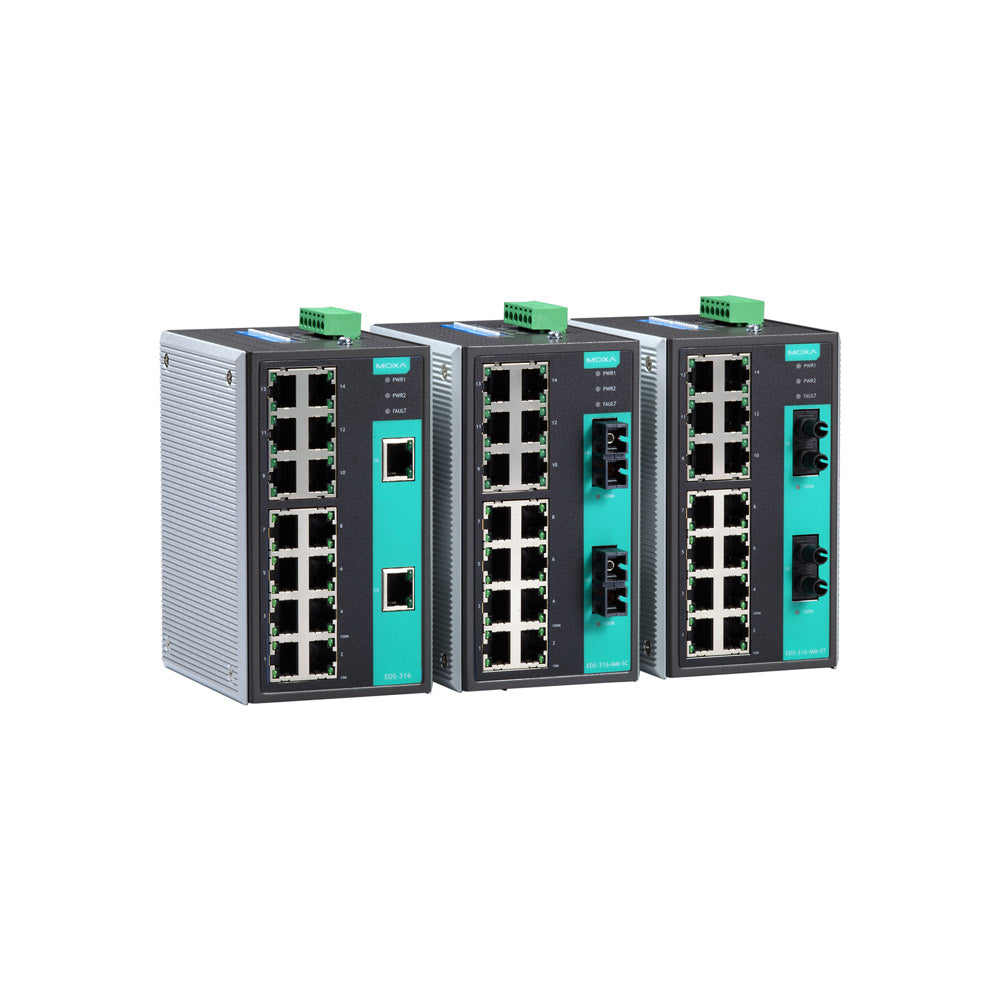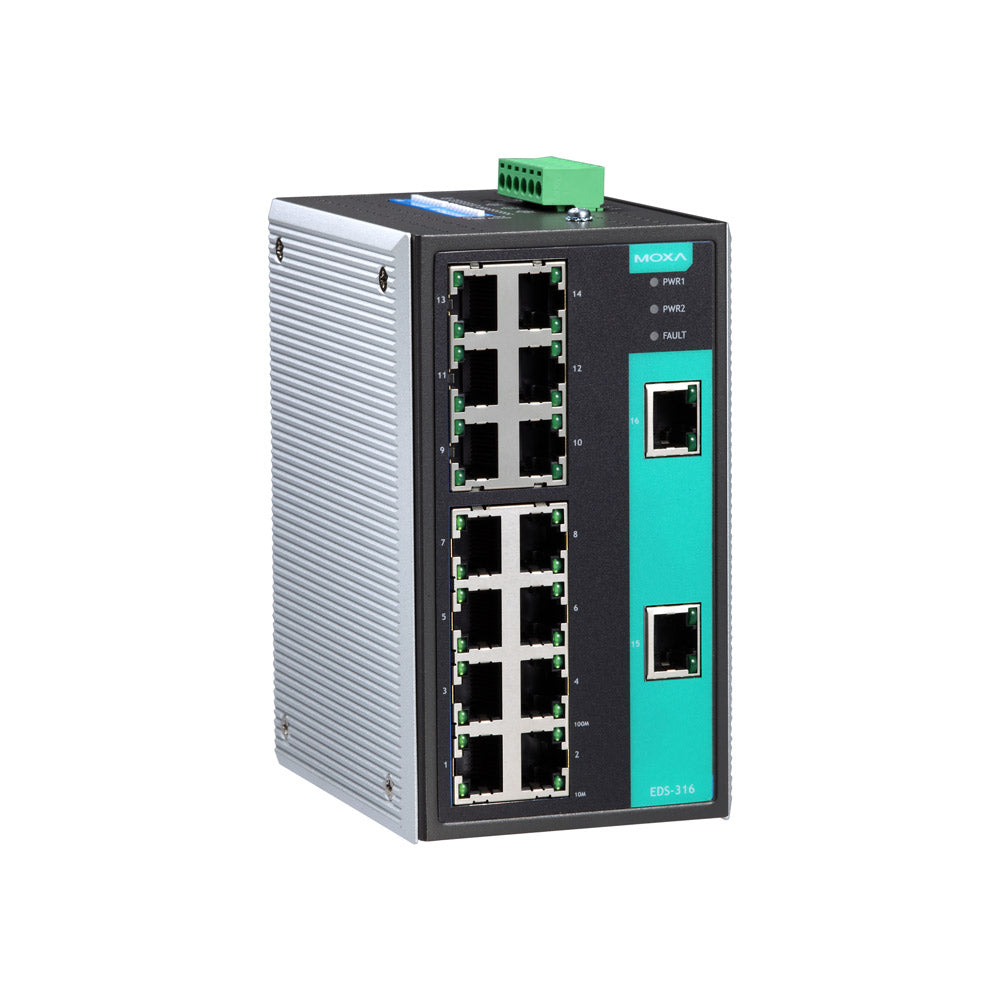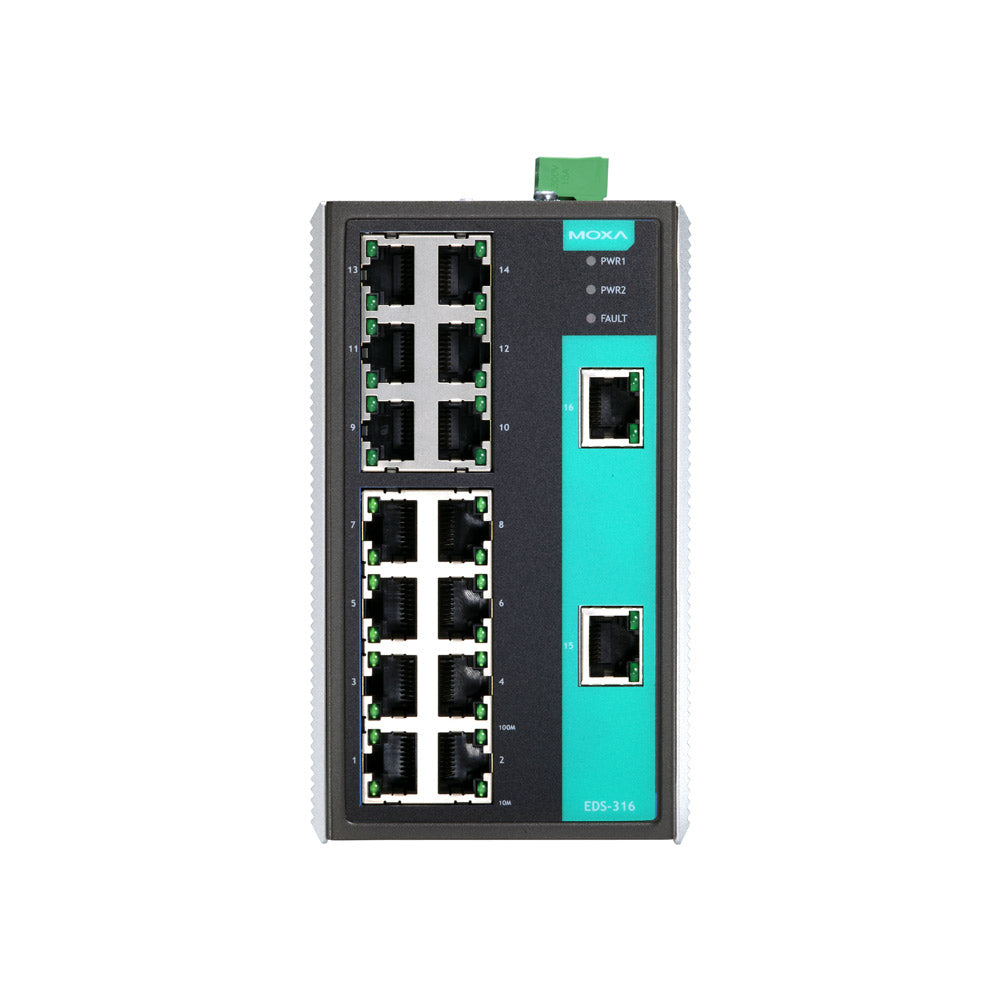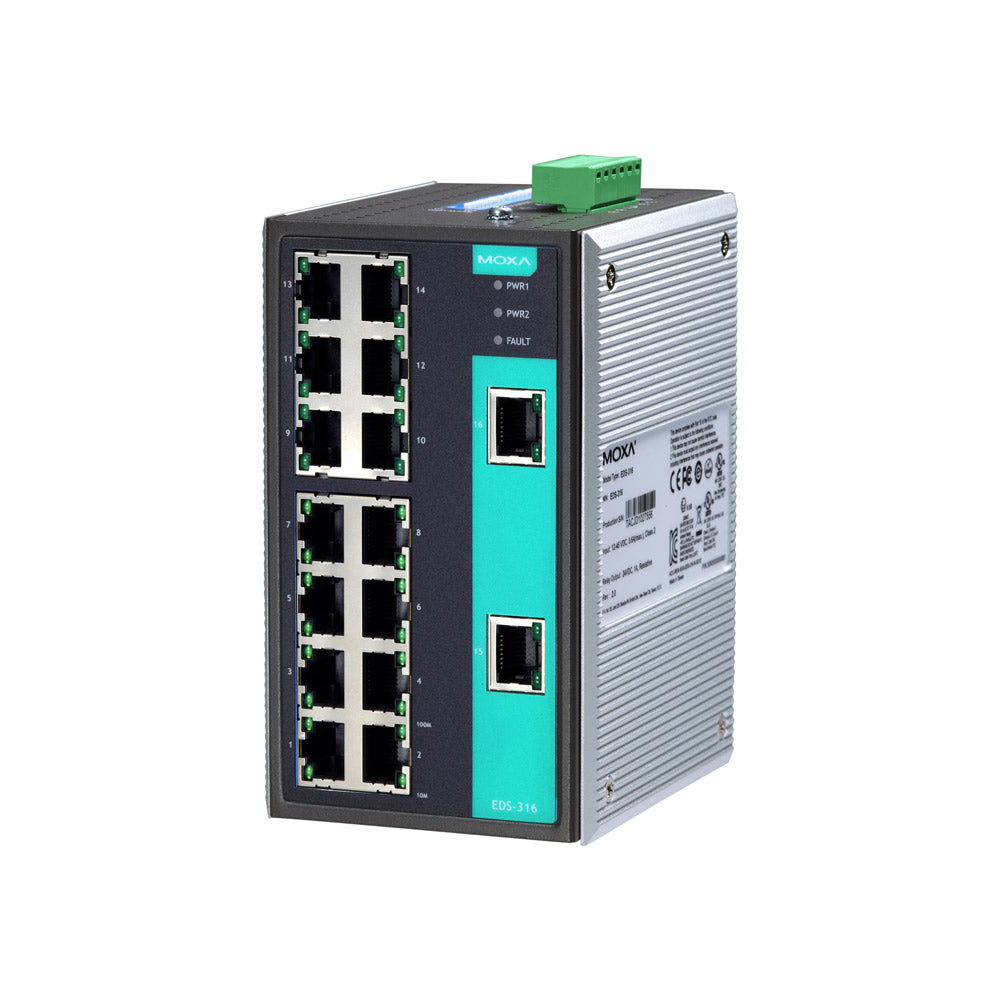- Redundant dual 12/24/48 VDC power inputs
- Support Auto negotiation speed, Full/half duplex mode
- Supports Auto MDI/MDI-X connection
- Overload current protection
- Reverse polarity protection
- Broadcast storm protection
- Operating temperature range -10 to 60C
- Rugged hardware design certified for hazardous locations (Class 1 Div. 2/ATEX Zone 2), transportation (NEMA TS2/EN 50121-4), and maritime environments (DNV/LR/ABS/NK)
- Models with single/multi-mode fiber (ST/SC Connectors) available
- Wide temperature models available
Moxa EDS-316 Ethernet switches provides a reliable solution for your industrial Ethernet connections. These 16-port switches come with a built-in relay warning function that alerts network engineers when power failures or port breaks occur. In addition, the switches are designed for harsh industrial environments, such as the hazardous locations defined by the Class 1 Div. 2 and ATEX Zone 2 standards. All switches in the series undergo a 100% burn-in test to ensure that they fulfill the special needs of industrial automation control applications. Moxa EDS-316 switches can be installed easily on a DIN rail or in a distribution box. Wide -40 to 75°C operating temperature range are also available (-T models).
Auto MDI/MDI-X Connection
This function function allows users to connect Moxa EDS-316’s 10/100BaseTX ports to any kind of Ethernet device, without needing to pay attention to the type of Ethernet cable being used for the connection. Either a straight-through cable or cross-over cable can be used to connect Moxa EDS-316 to Ethernet devices
Switching, Filtering, and Forwarding
Each time a packet arrives at one of the switched ports, a decision is made to either filter or forward the packet. Packets with source and destination addresses belonging to the same port segment will be filtered, constraining those packets to one port, and relieving the rest of the network from the need to process them. A packet with destination address on another port segment will be forwarded to the appropriate port, and will not be sent to the other ports where it is not needed. Packets that are used in maintaining the operation of the network (such as the occasional multi-cast packet) are forwarded to all ports.EDS-316 operates in the store-and-forward switching mode, which eliminates bad packets and enables peak performance to be achieved when there is heavy traffic on the network.
Switching and Address Learning
Moxa EDS-316 has an address table that can hold up to 4K node addresses, which makes it suitable for use with large networks. The address tables are self-learning, so that as nodes are added or removed, or moved from one segment to another, EDS-316 automatically keeps up with new node locations. An address-aging algorithm causes the least-used addresses to be deleted in favor of newer, more frequently used addresses. To reset the address buffer, power down the unit and then power it back up.
Auto-Negotiation and Speed Sensing
All of EDS-316’s RJ45 Ethernet ports independently support autonegotiation for speeds in the 10BaseT and 100BaseTX modes, with operation according to the IEEE 802.3u standard. This means that some nodes could be operating at 10 Mbps, while at the same time, other nodes are operating at 100 Mbps. Auto-negotiation takes place when an RJ45 cable connection is made, and then each time a LINK is enabled. EDS-316 advertises its capability for using either 10 Mbps or 100 Mbps transmission speeds, with the device at the other end of the cable expected to similarly advertise. Depending on what type of device is connected, this will result in agreement to operate at a speed of either 10 Mbps or 100 Mbps. If Moxa EDS-316 RJ45 Ethernet port is connected to a non-negotiating device, it will default to 10 Mbps speed and half-duplex mode, as required by the IEEE 802.3u standard
This product is export-ready and classified under an international HS Code for smooth customs clearance. TNS ships worldwide via DHL Express, providing fast and reliable international delivery.
For customers in Singapore, we offer free local shipping on orders above SGD $80 — no extra handling fees.
Please contact TNS for key shipping and compliance details to support both local and international logistics planning.











